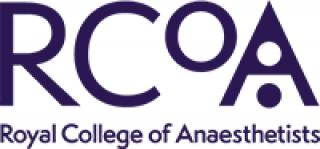Cost: Free
Book a place
Overview
This free online four-week course will help you learn about perioperative medicine: what it is, why it matters and how to improve patient outcomes and reduce healthcare costs.
Too many patients die or suffer prolonged complications following surgery. Perioperative medicine is an emerging multidisciplinary specialty that aims to significantly improve the care of high-risk surgical patients.
The course is aimed at medical and allied health professionals. It emphasises that enhanced care and improved outcomes depend on a multi-disciplinary team working together with a common goal.
It'll help you understand your role within the perioperative pathway and give you ideas for simple changes you can make within your own workplace to improve patient care.
This is a FutureLearn MOOC (massive open online course), created in partnership with UCL. The course is endorsed by the Royal College of Anaesthetists (RCOA) and the World Federation of Societies of Anaesthesiologists.
Course content
Each week covers a different topic, as follows:
- Week one - the need for perioperative medicine
- Week two - shared decision-making and the practical use of risk assessment
- Week three - the role of protocols in elective and emergency surgery
- Week four - the unique challenges in perioperative care for the elderly
Teaching and structure
You'll learn though:
- watching specially created video content
- reading articles
- completing interactive quizzes
You'll also learn about patients' experiences and discuss what you've learnt with others taking the course.
The core learning activities should take around three hours each week.
Links to additional reading and further resources are also provided for each section.
Who the course is for
This course is suitable for all medical and allied health professionals, including:
- anaesthetists
- surgeons
- physicians
- preassessment nurses
- surgical ward nurses
- operating department staff
- medical managers
- medical students
Although some of the statistics and guidelines are UK specific, the key concepts and learning aims are relevant at an international level.
Learning outcomes
By the end of this course you'll be able to:
- justify the need for better, more holistic care for the high-risk surgical patient, to improve outcomes and reduce healthcare costs
- engage with risk assessment tools to characterise and quantify the risk of an individual undergoing a particular procedure
- demonstrate the need for protocolised care pathways and evaluate the success of the enhanced recovery programmes in reducing variance in practice
- describe the major challenges in delivering perioperative medicine for the elderly
- discuss the current economic pressure on healthcare systems and how perioperative medicine can be used to reduce these pressures
Certificates and further study
You can buy a FutureLearn Certificate of Achievement once you have completed 90% of the learning activities.
The team behind this MOOC also runs an online MSc in Perioperative Medicine. You can find out more about this course on the UCL Division of Surgery and Interventional Science's website.
Partners



Course team

Dr Abigail Whiteman
Abigail is a consultant in anaesthesia and perioperative medicine at University College London Hospitals. She's also a faculty member of the UCL Perioperative Medicine Master's Programme.

Dr Philip Sherrard
Phil is a senior registrar in anaesthetics and education fellow in perioperative medicine at University College London Hospitals.
Book a place
Course information last modified: 30 Nov 2022, 16:00
 Close
Close

